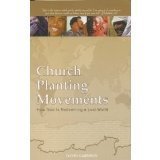Kenneth A. Camp's Blog, page 15
August 9, 2016
3 Ways Our Faith Frames Our Politics
Guest Post—Matt Peacock is today’s guest blogger. Matt is the Executive Director for Partners in Hope Lake Travis. To learn more about Partners in Hope LT, follow the link at the bottom of the post.
Presidential elections create a national discussion like nothing else. Even people who never engage in political discussions will get brought into the public dialogue whether they want to or not.

SONY DSC
Christians need to enter the political conversation carefully.
Political conversations are filled with opportunity as well as potential landmines.
It helps to remember a couple of things:
First take seriously that we are God’s representatives on earth. The words and attitudes we express reflect God for the world to hear and see. That should give us a dose of humility and pause before letting words fly. The Bible says to be slow to speak and quick to listen – which allows us to run our attitudes and words through the Holy Spirit filter first.
Second understand that our faith should frame our politics and not the other way around. How does Faith Frame Our Politics?
3 Ways Our Faith Frames Our Politics
Understanding What is important to God.
Politics will create its own list of issues that are important and present the options that you are to be either for or against. That presents obvious problems for a Christian that should be looking to scripture to decide what issues are important to God and how God says we should approach them. For example, the national election politics may say that the economy is the biggest issue and the solution choices presented may be either more or less taxes. For the Christian looking at the scriptures to discern what issues seem to be most important to God – that issue may not be at the top from God’s perspective. So do I stay in the political narrative and try to endorse one of their choices as a Christian, or do I look to raise others.
Another example may be the effectiveness of Government to solve problems. The choice may be presented as either grow and empower government or reduce and limit it. Again from a Christian perspective seeking what is important to God you may discern that God is calling His people to address issues of injustice, poverty, prejudice and others regardless of what government we live under. So maybe a different emphasis emerges like what type of government could best help individuals who are trying to serve the needs of others.
Letting faith frame our politics leads us to questions and paths the political realm will often not entertain until we bring a Biblical perspective.
2. Knowing When to talk and when to act.
God calls us to champion His causes on a continual basis not just during elections. Elections can help bring an issue to the forefront, but any solutions will be long term and take commitment well beyond election day. Christians are called into the dialogue, but more importantly into the work of the solutions. If an issue is important to God – then it is important to God everyday. Talk is cheap during elections. Christians need to talk about the important issues when no one else is interested. Christians also need to work on the problems when the elections are distant memories.
Letting faith frame our politics keeps us involved in a positive way on a continual basis. It keeps us from being talking heads, and lets us be the hands, feet and voice of Jesus. That is when God does His great work.
3. Paying attention to How we talk about politics.
Finally faith frames our politics by how it is discussed. Not a lot needs to be said about the current climate of dialogue in all discussion today in our culture. Its not good. For the Christian, God does not give us the option to be the same as the world. That certainly includes how we discuss politics and other issues. The Bible calls us to speak truth in love. We have a role to speak truth, but it is in an attitude of love which wants the best for all. In Ephesians God tells us: “Do not let any unwholesome talk come out of your mouths, but only what is helpful for building others up according to their needs, that it may benefit those who listen.” That gives us clear direction for our political dialogue as well.
When we let our Faith Frame Our Politics, we influence the world instead of it influencing us.
Partners in Hope Lake Travis connects people who desire physical, emotional, and spiritual help with people who will help. Unlike ministries that organize a crisis response to a housing emergency, Partners in Hope helps families by working to improve living conditions, walking through a season of life, and empowering them to transform over time.
August 1, 2016
His Hands. His Feet.
Sent to the fatherless, the brokenhearted, and those far from Him
You not only notice the person standing on the street corner holding a sign asking for help, you have compassion for them. You are the person who brings the child of another person into your home and treats them as if they were your own flesh and blood. You use your resources, like time and money, to invest in people who are in need.

You engage with people who are hurting and broken knowing that it is going to get messy. You are the one who uses your vacation time to travel to places so you can share Jesus with people who might otherwise never hear about Him.
Even though you are that person, you don’t always know what to do. Some days you need encouragement. Other times you look for inspiration.
Why do you live life like this?
You understand that you are His ambassadors. He didn’t create you, then redeem you so that you could live your life the way you want. You know you are sent.
You are His Hands. His Feet.
My hands can selfishly toil for my own interests. They far too often remain stuffed in my pockets when someone needs a helping hand. My feet can stumble. They can wander.
Yet ever since I was a youth, I knew He had a purpose for me. Over time I understood that just as God sent His son into this world, he sends me. God chooses to send us, broken vessels that we are, to the poor, the brokenhearted, and those who are far from Him.
I have found that what continues to inspire me, what motivates me, what gives me life, is association with others who have this similar passion. Whether it’s over a meal, or through a story, or on a podcast, or even serving side by side, experiencing how God uses another persons gifts and talents to accomplish His mission always gives me life.
His Hands. His Feet.
I plan to make this the new name for this website and upcoming podcast (launching this Fall!).
Let me know what you think about this website and podcast name—His Hands. His Feet. Sent to the Fatherless, the Brokenhearted, and Those Far From Him.
My hope is that this blog, the upcoming podcast, the books, and courses that I am creating inspire and motivate you to live life like this.
I am excited about the content that you will get on the podcast. You will hear from foster/adoptive families, local ministry/nonprofit leaders, international missionaries, regular people who live a generous, sent life, and many others.
Upcoming Book Launches
I am also working on two books—Parenting with Connection and Shame Undone: Men’s Struggle with Shame. The launch date for the first one is October 2016. And the launch date for Shame Undone is January 2017.
Don’t Miss Anything!
Don’t rely on social media to catch blog posts, upcoming podcast episodes, and information about the book launches. The best way to get these are via email sent directly to you. Plus, you will get extra content that no one else gets.
The way you sign up is simply by filling out one of the forms either on the side or bottom of this blog post. Grab the Discover Your Mission ebook or the Count the Cost mini-course. They are yours for free! You can even get both of them if you want.
If you are already have signed up and you want these freebies, go ahead and fill out the form to get yours!
One last thing…
I want to hear from you. Please let me know what inspires you, and what will encourage you to live a life sent.
July 25, 2016
It Is Easier To Serve God Without A Call
Do you think God calls us to His work? Do you think He has a specific vision for your life? Do you give that thought any consideration or would you rather He just leave you alone?

If you do want to serve God wouldn’t it be easier to serve Him on your terms?
It is easier to Serve God Without a Call or Vision.
Here is what that would look like:
We decide what kind of time and effort we give to God’s work.
We choose what we do for God.
We use our judgement to guide us to where we should go and how we can be the most useful.
What is wrong with that you ask? Or maybe that just convicted you, because you, like me, recognize that is how we far too often approach our service to God.
I read that statement, “It’s easier to serve God without a call or vision”, in a devotional by Oswald Chambers recently. If our reason to serve God is out of obligation or a need to feel good about ourselves, then it’s definitely not because of God called us to that work. And, when this is the case, we “are not bothered by what He requires.”
Chambers states that we use our own common sense to decide how to serve God. When we do that…
We will consider the time I decide to give God and my own ideas of service as dear to Him.
We will consider our lives as our own.
Our service, when based on our common sense, might just compete against our total surrender to Him.
We use our own judgment, instead of Jesus Christ, to be our guide as to where we should go and where we could be used the most.
**These thoughts come from Oswald Chambers
This challenges me. When I think about mission and serving God, I usually do rely on my common sense. What talents and gifts do I have? What do I enjoy doing? Where do I want my family to live?
I do think we have it backwards. We think our life is ours to give to Him. I believe He thinks that our lives our His to do as He wills. No wonder so few of us fully surrender to Him even though He promises us abundant life when we do.
Forgive me Lord for living life as though what I offer You as my act of service is dear and precious to You. Help me to surrender my all to You for you to use as You will.
July 18, 2016
15 Ways We Shame Our Children
As I work more with our adopted son and in the foster care/adoptive world, I see a connection between trauma and shame. Even if a child never makes a bad choice in their life, the things done to them, and what they see others do causes shame to pour over their soul like a bitter, sticky molasses.

Abusive, broken homes are a sick petri dish for cultivating shame. I don’t think that surprises anyone. If a child is old enough to remember leaving a home to enter foster care or adoption, they often wonder what is wrong with themselves. Even a child who was a baby when placed in foster care or adopted seems to struggle with a deep sense of shame as they grow older.
Sadly, many children live in shame-based homes, not just ones that end up in foster care or adoption.
Did I put you on the defensive? Not my intention! The last thing I want to do here is shame parents. But I do want to bring some attention to how we parent our children.
Many families and even cultures use shame as a way to modify behavior.
I agree on one hand that it is good for a child, or anyone, to recognize when they have done something wrong and feel remorse. When we have “no shame” we lose our filter of what is right and wrong.
So when is shame a good thing, and when is it a bad thing?
First, there is a difference between shame and guilt. I think there is even a difference between shame and toxic shame.
When our child does something wrong, it is important that they understand what the wrong behavior is and why it’s wrong. I define that as guilt.
However, that’s different from what toxic shame is. Guilt tells us that we did something bad or unacceptable. Toxic shame tells us we are something bad and unacceptable. Guilt focuses outward to the action. Toxic shame focuses inward to our identity.
Again, my goal isn’t to shame us as parents, but it is to bring attention to things we say or do that shame our kids, possibly without us realizing it.
Here are 15 ways we shame our children:
Don’t give them a voice.
Over-correct.
Frequent fighting within the family.
Make it difficult for small successes; daily wins.
Withhold praise.
Use words like “naughty”, “stupid”, and “bad” to describe the child instead of the behavior.
Compare them to siblings or peers.
Dismiss their emotional and physical needs by telling them they are wrong for wanting, feeling, or needing.
Reject them, such as, being too busy for them.
Overly critical.
Insult.
Terrorize with extreme anger.
Body language that communicates disgust, disapproval, etc.
Trivialize their experiences.
Rarely own your bad behavior.
This is definitely not meant to shame you. I even have to catch myself as I read through these, because I see myself doing many of these. The temptation is to beat ourselves up and believe that we are terrible parents. If you saw yourself in a lot of those examples, I’d be surprised if you aren’t believing that about yourself.
So to not leave you feeling helpless…here are a few suggestions to begin changing the culture within your home:
Be willing to look at yourself. If you see that you are shaming your child, odds are you come from a shame culture. If so, doing some self-analysis and possibly healing will help you break that cycle with your own child.
Think of discipline as a way of training your child and not behavior modification. Seek to train the way the child feels and thinks about morality. Shaming them produces shallow results anyway.
Seek to understand why your child is behaving the way they are. It could be more developmental than disobedience. If you have a child from a hard place, their behavior probably is fear driven as a result of trauma.
I am working on a book about how men handle shame. If you want to join in that conversation and get updates about the book, please fill out the form below!
July 11, 2016
The One Thing that Will Heal Our Land
I don’t often write about current events, yet I feel a bit melancholy by the events that surround me of the past week or so. It’s not just the tragic deaths of black men and police officers around the country over the past week or so. Over the same week the loss of two people who I knew, both passing on the same day, our day of independence in the U.S., July 4th, has me a bit introspective.

One was a dear relative that I grew up calling Aunt although she was my cousin. She was only 11 months younger that my mother. Battling cancer her passing wasn’t entirely unexpected, still all who knew her will miss her love for life and contagious laugh.
The other was a friend that I knew from my church. His death was a surprise to us all. He seemed to be in good health, and he like my cousin had a passion for life.
Brevity of Life
As I sat in each funeral service, one on Friday, the other on Saturday of this past week, my mind pondered the brevity of life, as it does for most of us when we find ourselves at a funeral. It caused me to think about what is important in my life. I wondered if I was making a difference.
Condition of my heart
I thought about the condition of my heart. Not my physical heart, even though I did think about how I need to take better care of my body. I mean my spiritual condition. What attitudes, thoughts, deeds…pour out of my heart?
That’s when my mind turns to the events in our nation. Black men losing their lives at the hands of police officers. Police officers losing their lives in the line of duty. The racial tensions that exist in our country today trouble me.
I have a dear friend whose skin happens to be darker than mine. I have listened to her talk of fear, anger, frustration, and many other strong emotions in response of what it is like to live in this nation as a black person.
Her husband, a humble, quiet man who I love and respect, told me many years ago about how he used to own a business cleaning homes. One contract he had been to clean model homes like what you find in new neighborhoods. New neighborhoods tend to be predominately white upper middle class. Like for any business client, he cleaned these homes at night.
I think you can guess how this story goes. Someone saw a black man in a new neighborhood coming out of a home and called the police. The assumption was that he didn’t belong there, so he must not be doing anything good.
Why am I sharing these stories? It’s because, as a white man I have never had things like this happen to me. I don’t ever fill a rush of adrenaline pump through my veins caused by fear when a police officer pulls me over. I have never had someone treat me less than just because of the color of my skin.
I also know that racism and prejudice are not reserved for those who live in this country. Because of traveling and living in other parts of the world, I am fully aware that this evil exists everywhere.
It’s not just a black/white issue.
It is a heart issue.
The reason I call my friend who has darker skin than mine my friend isn’t because of some sense of social justice or business relationship or any other reason but one.
Our hearts are knit together.
The One who lives in her also lives in me.
I am not color blind. I can fully tell that the color of my friend’s skin is a different color than mine. I know all too well that her life experiences are different from mine. But my eyes look deeper than the color of person’s skin or the culture from which they come. In fact, it’s not my physical eyes that look upon a person, it is my spiritual eyes. And when I see my friend, I see a sister.
I agree that things need to change. Change from external forces usually is met with fierce resistance. Yet change that comes from within transforms.
The One Thing that Will Heal Our Land Is Transformed Hearts.
My Prayer
Lord, change me. Renew and Revive my heart. May I see others with your eyes. You see straight to our heart not encumbered by race, creed, or even our rebellious deeds. Turn our hearts to You, O God, and Heal our land.
July 4, 2016
Why I Joined the Self Publishing School
If you are like a lot of people, you have an idea for a book. Many of you have friends and family telling you that you need to write your story down. I know some have worked on a manuscript for years.

What holds you back from taking the next step? Is it that you don’t “have time”. You don’t know where to begin. You are afraid you will suck at writing. Or you have some other reason that hundreds of other people also have for not ever writing that book.
When people ask me what I do, I am finally comfortable with my answer, “I am a writer.” It’s accurate. I am a writer. I have blogged now for about three years. I published Adopting the Fathers Heart in 2013. I have two ebooks published on Amazon.
But I still feel like I don’t know what I am doing most of the time.
I successfully got over the hurdle of writing and publishing content. But I have more that I want to write and publish. My recurring challenge is that I start writing projects, but then I don’t complete them. I become constipated with information and ideas of what to do next, how to do it best, and how to make it work.
Since publishing Adopting the Fathers Heart, the one thing I have consistently written is 1-2 blogs each week. That’s definitely not something to be ashamed of, but I wasn’t sure where I wanted to go with my writing.
I knew that I needed two things:
A proven system. Most sites, “experts”, or training that I have found about how to write, publish, market, etc. But I get overwhelmed with all of the information. Or the information motivates me to try some ideas. What ends up happening is I have several partially completed projects with no end-game in sight.
Accountability. It’s hard for me to set up accountability when I don’t know what I want to accomplish. When I understand my objective or goal, I am more likely to share it with someone who will help me work toward that goal within an agreed schedule.
This is why I decided to join the Self Publishing School!
Chandler Bolt has developed a system that takes students from “blank page to bestseller.” The school also provides multiple layers of accountability like a personal coach, an “accountabilbuddy” (a fellow student), and mastermind groups.
Chandler has used his system personally to publish five bestsellers so far, as well as, help hundreds of others do the same.
I was hesitant to make the investment, but Chandler gives a 30 day money back guarantee.
I feel confident that the Self Publishing School will not only help me write and publish the books I am working on, but will also help me create better content that meets the needs of my audience.
So, if you are an inspiring author, or want help self publishing your next book, I highly recommend checking out the Self Publishing School.
You should know that I am not benefitting from this at all! I just know that many of you reading this are just like me. You want to write that book, but you need to know how and be held accountable to getting it done!
P.S. I am always open to chatting with you about your experience or aspirations to write. So, please drop me a note if you want to do that.
June 27, 2016
3 Reasons Why It’s a Good Idea To Let People Interrupt You
Are you like me? Are you easily distracted from what is most important? Careful that’s a trick question! Do you get focused on your to do list, and the last thing you want is an interruption?

All interruptions are good for is putting you in a bad mood or helping you procrastinate from the real things that need to get done!
No wonder there is such a thing as a monk’s life. Hmm…
Is that how we really want to live life though? I don’t just mean giving up and living as a recluse. We know that we need and want relationships, even if it means interruptions. But do we want to be in a bad mood or never get anything done because of constant interruptions?
Is there a way for interruptions to be a good thing?
I recently watched a video interview with Bob Goff, author of Love Does: Discover a Secretly Incredible Life in an Ordinary World. I read his book a few months ago, and as I got to the end of it, I couldn’t believe what I saw. Bob put his personal cell phone number in the book! In a short section at the very end of the book entitled—Connect With Bob—he writes this:
I’ve found that the people in my life who have actually been the most influential have also been the ones who were the most available. If you ever want to talk about any of the ideas in this book that ping you, my phone number is ***-***-****. Give me a call sometime if I can be helpful.Goff, Bob (2012-05-01). Love Does: Discover a Secretly Incredible Life in an Ordinary World (p. 224). Thomas Nelson. Kindle Edition.
Bob has sold 100s of thousands of copies of this book, and he invited everyone of the readers to…interrupt him. I remembering wondering how he handled those interruptions. When I watched that hour-long interview, I got to see first-hand.
What do you think those people feel when they call that number, and Bob actually answers his phone with a joyful, “Hello! This is Bob.”?
If you want to give him a call and find out, you just need to get a copy of his book!
When I am interrupted, my default reaction is, sigh, “don’t you see how busy I am?” If I don’t say it verbally, I am sure that my body language and facial expression communicates that very thing.
I do the same thing with email and phone calls. I see them as distractions and ways to knock me off my pursuit of more important tasks. I got to where I answered the phone for only a small, select group of people. I am talking about 2-3 people tops. Everyone else could just leave me a message, and I would get to them on my timetable. That communicates to everyone that I am very busy, important person, thank you very much.
But here was Bob on a video interview, and his phone rings. He looks at the interviewer and said, “excuse me, this will take just a second…” and he joyfully answers the phone not knowing who it was. He simply told them that he wanted to talk but needed for them to call back in about an hour.
What I found interested is that the way he handled the call honored both the caller and the person he was interviewing with.
I Learned 3 Reasons For Why It’s A Good Idea To Let People Interrupt Me
The more available I am, the more positive influence I can have on others.
I can gage how much time I give someone based on the need.
My availability communicates value and love.
Here is the deal…when we see interruptions as a source of frustration, people don’t get a warm, loving feeling from you. No, the exact opposite happens. We drive people away from us.
If people truly are the most valuable asset—Make Yourself Available.
June 20, 2016
How To Respond When Your Child Disobeys You
Parenting just might be one of the hardest things in the world! I tell you, some days I feel like I am on the verge of crazy. And I only have one kid!

Photo Credit: lightandform via Compfight cc
I far too often parent out of laziness. When I do, I look and act strangely like a dictator enforcing strict obedience. “Do what I say, now, or suffer the consequences, you little minion!” And I fully expect him to respond like a minion, running as quickly as he can to follow my orders.
Yeah right. Maybe that would happen if he was a compliant child with no history of trauma, abuse, and neglect.
The Difference Between Authoritative and Authoritarian Parenting
Honestly I have had to work on learning the difference between Authoritarian and Authoritative parenting.
Sometimes when my son is disobeying me, I feel my eyes bulging out of my skull as I think to myself, “I just want him to do what I tell him to do!”
I went through a phase that when he disobeyed me, I first threatened him with punishment. Then if he didn’t comply, I gave him a pop on his bottom. That defines Authoritarian parenting.
Yep, me. The guy who has taken multiple classes on Connecting parenting. The guy who has even taught a few classes on how to empower, connect, and correct.
Well let me tell you, at least with a child from a hard place, what they teach you is right. It doesn’t work. He either responded with anger, hitting, and yelling. Or he ran away from me with his hands covering his bottom shouting, “No don’t spank me Daddy!”.
Sure enough, my tyrannical, authoritarian parenting pushed him immediately into fight or flight mode.
How is Authoritative parenting different?
Balanced approach – any child benefits from a balanced approach, but especially children from a hard place. This look like giving high structure along with high nurture. The authoritarian approach is almost exclusively high structure. The total opposite is a permissive parenting style. When dealing with a child from a hard place, we can inaccurately assume that they need all grace “because of all the suffering they already faced”. Not true. The child needs to know what the rules are. They need to know how to interact well with others. They need correcting when they make poor choices. However, combine correction with high nurture.
Discipline vs. punishment – I find this takes pre-planning and intentional parenting. These two words might mean the same to you, but they are very different. Above we talk a lot about punishment. The goal is immediate obedience and behavior modification. Whereas discipline, while also interested in obedience, is focused on internal change. The word discipline comes from disciple. A disciple is one who follows a teacher or a set of beliefs. Punishment is usually quick when administered. Discipline or discipling takes time to explain and teach.
Long-term vs. short-term – Authoritative parenting is disciplining in the sense of making a disciple. That is a long-term approach to parenting. I want my son to learn how to make good choices, relate well to others, to love well, etc. If I take an authoritarian approach, I want him to make good choices, and so on, now or else.
What does it look like when I take an authoritative parenting approach?
We know what it looks like when I am the dictator and authoritarian! But when I am more sane and Spirit-filled, my parenting is much different. I intellectually understand why I need both high structure and high nurture.
When I do this well it looks like:
Patience – This really takes the Holy Spirit for me to respond with patience. It’s not only with patience but also with compassion that I look at it as an opportunity for my son to learn an right response. This looks like me sitting and holding him to explain why I am correcting him. It looks like giving him an opportunity to do things over so that he practices the right action.
Sharing of power – That might seem strange to you if you are not familiar with this type of parenting. I look for ways to empower my son. I stay in control as the parent, but when I give him control of things, he learns how to do life instead of it dictated to him. I disciple him.
Room to make mistakes and room to succeed – Making mistakes and having opportunities to do things well are great teaching tools. I can teach him how to handle different emotions. I can support him as he tries different ways of doing things. I offer a safe home base as he learns how to relate to others.
It does take more time, effort, and patience to parent this way. But it’s an investment. As I invest good parenting into my son, the results are not only better behavior, but also better connection. That’s a strong foundation for me to train and teach my son in ways that will mold him forever.
June 14, 2016
Why Pray for Muslims
What do you know about Islam? Is it mostly what you hear and read in the news? That’s kind of scary, because most of that is about ISIS and other terror groups. Or maybe you watch with intrigue or sadness about the droves of refugees fleeing parts of the Middle East.

Photo Credit: ybiberman via Compfight cc
Ramadan
Did you know that Muslims all around the world are in the middle of a 30 day fast right now? Over 1.5 billion Muslims are practicing one of the five pillars of their faith—Ramadan.
According to tradition, it was during Ramadan that the Qur’an was revealed to the prophet Muhammad. Muslims honor this event by fasting each day from sunrise to sunset.
During Ramadan, Muslims abstain from eating any food, drinking any liquids, smoking cigarettes, and engaging in any sexual activity, from sunrise to sunset. That includes taking medication (even if you swallow a pill dry, without drinking any water).
So if you have a Muslim friend that observes Ramadan, he might seem a little spacey, turn down offers for food or drink, and keep licking his dry lips!
Fastest Growing Religion
Did you know that Islam is the world’s fastest growing religion? Each year on average Islam adds 37 million people to its ranks. At this rate, Islam will surpass Christianity by 2050 as the most populous religion in the world.
Historically Christians have confronted Islam with might and missionary efforts. If you know history, you read about the Crusades. Hundreds of years ago Christian armies fought to defeat the Islamic jihadists. Sound familiar?
Over the years, missionaries tried the “my religion vs. your religion” approach. However, Muslims do religion pretty well, in fact, better than most Christians. So, the intellectual route rarely produces results with a Muslim.
A friend of mine who serves in the Middle East told me that those who went to work there knew that they would only see ones and twos come to faith in Christ.
Day of Miracles
However, recently, in the past 10 or so years, several movements have been witnessed of thousands of Muslims turning to faith in Christ from all over the Muslim world. My friend serving in the Middle East calls it the ‘Day of Miracles’.
Why ‘Day of Miracles’? Because story after story is told of Jesus revealing Himself to Muslims through dreams and visions. So many from all over the Muslim world that they can’t all be manufactured.
What do those working in Muslim cultures attribute this unprecedented awakening?
Prayer.
It is not a coincidence that this great awakening in the Muslim world coincided with an unprecedented prayer movement, not only for Muslims, but for all those living in the part of the world where most Muslims live, the 10/40 window.
Will you join many others praying for God to miraculous reveal Himself to Muslims during Ramadan?
Get a .pdf of 30 Days of Prayer for the Muslim World. You still have time intercede during this year’s Ramadan. I encourage you to do it today.
(Much of the information I share in this blog comes from this booklet.)
Here are a few recommended books if you want to read more about what God is doing among Muslims:

Miraculous Movements: How Hundreds of Thousands of Muslims Are Falling in Love with Jesus

A Wind In The House Of Islam: How God Is Drawing Muslims Around The World To Faith In Jesus Christ

Church Planting Movements: How God Is Redeeming A Lost World
June 7, 2016
How To Make Your Life Less Complicated
6 Ways We Complicate Life
If you want to know what God’s purpose is for your life, yet you struggle with hearing His voice, join the club. Even if we are disciplined enough to turn off the TV, put down our mobile devices, slow our schedules, and be still for a few moments, life still seems to be a blur.

Do you wake up some days realizing that you have too much to do and have too much stuff cluttering your home? So you apologetically step out of commitments. You make a trip to Goodwill after cleaning out your closet and garage only to repeat the cycle again.
Do any of these things complicate your life?
Over-commitment – Most families have both parents working outside the home and each kid involved with multiple activities. Every moment of every day scheduled. Never any down time. We don’t know how to sit still anymore.
Worry – When worry preoccupies our thoughts, we create scenarios in our mind, many that won’t ever materialize.
Selfish motives – We want things our way. This makes it hard to work well with others. Life is less complicated when we do things together.
Lust – We see what is not ours and want it. We lack contentment. Lust causes broken relationships, financial debt, and the absence of fulfillment.
Laziness – I don’t necessarily mean not working, even though that definitely complicates life. Rather I am referring to the putting off to tomorrow what needs to be addressed today. Things like getting out of debt, spending quality time with your children, writing a will, and so on.
Rebellion – Simply refusing to do things God’s way complicates life. I’m not sure why I go around and around that mountain, but I have many times.
First way to making your life less complicated is to admit what makes it complicated. I know you have tried to slow things down, and live life “right”. Even if we feel good about how we handle the list above, many of us complicate our lives by trying to do too many “good things”.
What kind of life did Jesus call us to? Didn’t He say that His yoke is easy?
We Don’t Know Our Purpose
The challenge we face is that most of us don’t know what our our purpose in life is, so we chase after things that don’t fulfill but instead leave us stressed and longing for something more.
Make sure every day you do what matters most. When you know what matters most, everything makes sense. When you don’t know what matters most, anything makes sense.'The One Thing' by Gary Keller and Jay Papasan
Keller and Papasan make a great point. Find out what your most important thing in life is and make sure that gets done. Everything else will fall into its proper place.
How To Make Your Life Less Complicated
Instead of listening to what the culture around you tells you what is important, learn to sit quietly at the seat of Jesus. Learn to hear His voice above the noise. It’s not easy. It takes discipline. I am not good at this yet. Yet I long for it. I long for it, because I know deep in my soul that His way is simpler. I know He makes life less complicated.



